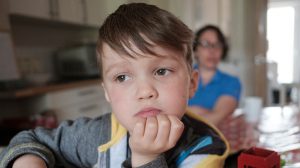
Anne Longfield, Children’s Commissioner for England, has publishing a major new report examining the impact of the Covid-19 crisis on children. The report, ‘Childhood in the time of Covid’ calls for a comprehensive recovery package for children and provides a roadmap for what should be done to help children to recover from their experiences of the last six months and the ongoing crisis.
While for some children there were certain aspects of the pandemic that brought benefits such as spending more time with their families, the report sets out how for many of the most vulnerable children the disruption of the last six months has been damaging and compounded existing inequalities. Even before the crisis struck, there were 2.2 million vulnerable children living in risky home situations in England, including nearly 800,000 children living with domestic abuse and 1.6 million living with parents with severe mental health conditions. The report warns these numbers are likely to have swelled, fuelled by families locked down in close quarters for weeks and months, and an emerging economic crisis adding pressures on family finances.
At the same time, the disruption to children’s education has been sizeable, with schools closed to millions of children for six months. The report predicts a widening of the attainment gap between children from disadvantaged or vulnerable backgrounds and their peers.
The Children’s Commissioner calls for a comprehensive recovery package for children to help mitigate the damage done by the crisis thus far, arguing that central to this package must be significant investment in early help for families starting from the early years. The report says the nation’s efforts to ‘build back better’ must begin with a focus on children, sometimes sadly lacking during the pandemic. Should there be more lockdowns, the report calls on children’s needs to come first.
The report details how millions of children have faced a cocktail of secondary risks which means that many have suffered disproportionately as a result of the crisis. Some of the most vulnerable children, including children in care, children in custody and children with Special Educational Needs or Disabilities have seen their rights actively downgraded at a time when protections should have been increased, not weakened.
The report also warns that faced with the spectre of a winter of Covid-related restrictions across society, followed by a long economic tail including widespread unemployment of the type not seen by the 1980s, the country faces an inter-generational crisis, with the impact of the economic fall-out on parents determining the future prospects of their children, destroying the Government’s promises to ‘level-up’ opportunity.
New research published by the Children’s Commissioner alongside the report highlights some of the worries children had during lockdown. A survey of children for the Children’s Commissioner’s Office, “Stress Among Children During the Coronavirus Lockdown” reveals the greatest reported increase in stress during lockdown came in worries about school. 41% of children reported feeling more stressed about schoolwork and exams after schools closed to most in March. However, overall, it appears many children felt less stressed as the lockdown went on.
Today’s report makes a number of recommendations, including:
- A comprehensive recovery package for children to mitigate the damage caused by the crisis. The report calls on the Government to ensure all families have the basic resources to provide care for their children by introducing a pre-emptive package of welfare and housing support for families who have built up rent arrears to counter a potential wave of family homelessness. It argues the £20 uplift in Universal Credit and Working Tax Credit for families, due to expire in April 2021, should be retained, and an additional £10 per week child payment introduced.
- Greater investment in local authority early help services, the Troubled Families programme and health visitors. All of these services should be brought together in local Family Hubs, which should become core assets in every community.
- Schools should target their portion of the £1 billion catch up fund on vulnerable and disadvantaged children who have lost out the most – they should not be forced to spend it on PPE, supply teachers or adaptations to school buildings. Reducing educational disparities between disadvantaged children and their wealthier peers must be central to the Government’s levelling up agenda.
- A greater focus on pastoral care in the coming weeks and months, supported by accelerated implementation of the Government’s Green Paper on mental health, so that every child can access counselling in school.
- Next year’s summer exams should be pushed back as far as possible, while ensuring that children receive results in time to progress to college or university as normal in the autumn.
- Children to be put at the heart of planning for further lockdowns, local or national, so that schools are the last to close and first to reopen if there are further lockdowns. The full range of services used by children, like children’s centres and family hubs, should be kept open and visits by social workers and health workers should be continued as far as possible.
- Children’s rights and protections should be upheld and legal changes which have reduced children’s rights and are still currently in operation should be reversed.
- Local authorities should do everything possible to ensure respite services for disabled children and their families continue to operate. The Government should provide additional funding to make this happen if necessary. The SEND Review, which was promised before the Covid-19 crisis, must now be progressed as a priority.
- In the event of further lockdowns the Government should review the rule of six over time with a view to exempting children under 12. Restrictions over individuals from different households meeting should seek to exempt children under 12 to enable them to play together.
Anne Longfield, the Children’s Commissioner for England, said:
“Children have fewer health risks from Covid-19 and yet they have suffered disproportionately from the nation’s efforts to contain the virus. While it has been good to see a greater understanding in parts of Whitehall and Westminster about what it means to be a vulnerable child, many of the decisions taken over the last six months have not put children first. While pubs, restaurants and non-essential shops opened, the majority of children were not able to attend school.
“Unless the Government acts now, Covid-19 is in danger of becoming an inter-generational crisis, with the impact of the economic fall-out on parents determining the future prospects of their children. This would decimate the Government’s ability to level-up opportunity across the country in the way the Prime Minister has repeatedly promised to do.
“The scale of the response to Covid-19 has shown us how our society can respond to huge challenges. After all the sacrifices children have made over the last few months, we should repay them with a comprehensive recovery package, ‘a Nightingale moment’, that puts their interests first.”





